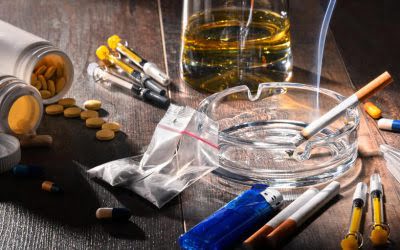However, medical detox alone usually isn’t enough to achieve long-term sobriety. Detoxification does little to change long-term drug or alcohol abuse on its own. Patients should likely continue addiction treatment following detox. The Merriam-Webster dictionary describes the word sobriety as the quality or state of being sober.
How Do Sobriety and Abstinence Affect Mental Health Differently?
- Recovery involves rebuilding a life— returning to wellness and becoming a functioning member of society.
- In leaving addiction behind, most people have to restructure their everyday life, from what they think about and who they spend time with and where, to how they use their time, to developing and pursuing new goals.
- Hobbies and exercise are healthy ways to reduce your stress level.
- Drug and alcohol rehab centers are designed to keep you away from the temptation you may experience if you try to get sober alone.
- When I stopped drinking alcohol, I was desperate to know the stories of other people who’d also taken this road less traveled.
How do you feel about yourself when you’re drinking or using drugs? Maybe not, especially if your substance use has become a problem. Getting and staying sober can change the way you look at yourself. https://missouridigest.com/top-5-advantages-of-staying-in-a-sober-living-house/ You won’t have to think about yourself as a person with no self-control or someone who says stupid things when drunk. You’ll also build your self-esteem by sticking with your decision to stay sober.

More From the Los Angeles Times
- Abstinence is the complete cessation or avoidance of the substance or behavior to which one is addicted.
- Learning what one’s triggers are and acquiring an array of techniques for dealing with them should be essential components of any recovery program.
- Identify other factors in your life—relationships, work—that can help take the focus off addictive behaviors.
- If you are committed to taking the steps necessary to quit abusing drugs or alcohol, treatment professionals and members of your support group can help you throughout the recovery process.
Anger is a normal and natural emotion, but how you deal with it will make a difference in maintaining your recovery. Once you do return to work, it’s important to create a budget and take steps to safeguard yourself as work stress can be a relapse trigger. Financial troubles and problems finding and keeping employment are Top 5 Advantages of Staying in a Sober Living House major triggers for relapse, but it is possible to take baby steps and get your finances in order. Just keep in mind that your improvements won’t happen overnight. However, research suggests that while 12-step groups are effective, people often don’t continue their involvement at beneficial levels over the long term.
How do the best treatment programs help patients recover from addiction?

The brain experiences pleasure from many different things we like to do in life; eating dessert, having a sexual encounter, playing a video game, etc. This pleasure is signaled through the release of the neurotransmitter dopamine (a chemical messenger present in the brain’s connected pathways) into the nucelus accumbens, which is the brain’s pleasure center. Generally, this is a positive thing, as it ensures people will receive pleasure from doing things necessary for survival. Science has come a long way in helping us understand the way the brain changes in addiction. In this section, we will provide updates of research on how the brain is impacted during addiction and recovery. Additionally, medications are used to help people detoxify from drugs, although detoxification is not the same as treatment and is not sufficient to help a person recover.
However, outpatient treatments allow patients to live at home during the process of becoming sober. This enables patients to continue working, going to school, or completing family responsibilities. BetterHelp can connect you to an addiction and mental health counselor. Emotional sobriety refers to the ability to deal with and process feelings positively. Depending on the severity of the addiction or substance being used, a medically supervised detox may be necessary to safely help you. The checkpoint was part of a holiday weekend enforcement crackdown targeting alcohol and drug-impaired driving.
For many, returning to daily life after treatment means returning home to family, which is why family can be the strongest social support system. However, relationships within the family may have been impacted by substance misuse and therefore, require mending. You must be ready to change in order to find the best treatment program for you. It will help prevent relapse once the formal treatment program ends. There are some friends who are better left behind—those who are linked to the addictive experience. People in the throes of addiction are not capable of the best form of friendship.
Deadly overdoses stopped surging among L.A. County homeless people. Narcan could be why
Shift perspective to see relapse and other “failures” as opportunities to learn. The prospect of change engages people in an inner dialogue about hope, disappointment, and accountability. Cravings diminish and disappear in time unless attention is focused on them. Negotiating with oneself for a delay of use, which doesn’t deny the possibility of future use, and then getting busy with something else, capitalizes on the knowledge that cravings dissipate in about 15 minutes. John C. Umhau, MD, MPH, CPE is board-certified in addiction medicine and preventative medicine. For over 20 years Dr. Umhau was a senior clinical investigator at the National Institute on Alcohol Abuse and Alcoholism of the National Institutes of Health (NIH).

